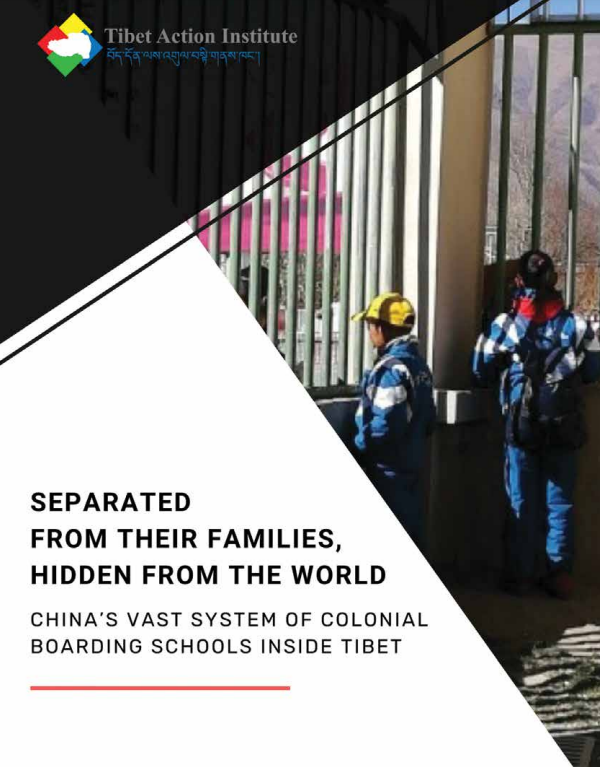In January next year, the United Nations will hold its Universal Periodic Review (UPR) where it will scrutinise the human rights conduct of its member states, assess their claims on upholding human rights and also invite NGOs and other stakeholders to give their views on the country in question.
It could be a particularly uncomfortable time for China, which is under increasing international criticism over its record in Tibet where denial of human rights is accompanied by efforts to wipe out Tibetan culture, faith and traditions. This includes forcibly removing Tibetan children from their homes and communities and confining them to boarding schools where the major aim is to Sinicize them, to make them more Chinese.
Last week, China issued its 19th white paper on Tibet titled “CPC Policies on the Governance of Xizang in the New Era: Approach & Achievements”. It’s release about two months before the UPR reflects careful timing, say Tibetan activists, and seems intended to influence the UN proceedings.
The white paper says Tibet has seen “progress and development in all respects including politics, economy, culture … victory achieved in the battle against extreme poverty … and happier lives for the people”.
It makes some particularly ominous claims when it comes to children. It refers to a publicly funded 15-year education system from kindergarten to senior high school. It says boarding schools have enhanced the level of education accessibility, and China’s state-run Global Times claims that it is “satisfying the people’s demand for high quality educational resources and providing an excellent learning environment for children especially in remote areas”.
The Global Times report says it visited boarding schools in Lhasa, Nyingchi and other places in Tibet and found that “students of all ethnicities in Xizang are guaranteed education and quality of life. Tibetan students can speak fluent Putonghua (standard spoken form of Chinese) and Tibetan confidently”.
This is precisely what concerns Tibetan activists in India and other parts of the world. Their concerns are reflected in a report compiled two years ago which is now being updated for the UPR. Titled “Separated From Their Families, Hidden From The World”, it focuses on what is described as “China’s vast system of colonial boarding schools in Tibet”.
The report warns that the boarding schools are “the cornerstone of an assimilationist agenda advanced by Chinese President Xi Jinping himself, intended to pre-empt threats to Chinese Communist Part control by eliminating ethnic differences”.
The colonial boarding schools will have enormous psychological impact and emotional trauma on Tibetan children, has implications for whole generations of Tibetans and the long-term survival of the Tibetan identity, the report grimly predicts. It makes the following points:
-Tibet’s education system has become primarily residential according to official Chinese data, and approximately 800,000 Tibetan students aged 6-18 (78%) are living in such schools;
-Tibetan parents are compelled to send their children to such schools for lack of alternatives, and also due to threats and intimidation from the authorities;
-Students are at risk of losing their mother tongue since classes are primarily in Chinese, they live apart from their communities, are unable to practice their religion and are subjected to a highly politicized curriculum to make them identify as Chinese;
-Tibetan students speak of physical and sexual abuse in the boarding schools, long hours designed to exhaust and make children succumb and break them from their parents.
The hope is international pressure generated through the UPR could force China to clean up its act and Tibetan activists say there is some evidence of that. But in the end Beijing’s gestures may only be cosmetic. The overall intent and goal of its Tibet policy is clear and can be summed up in two words: Sinicization and assimilation.
















